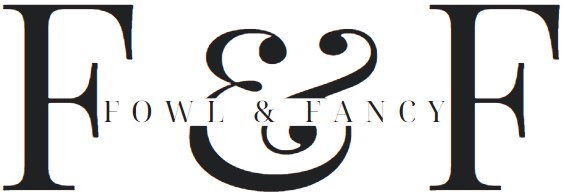Fun fact! Chickens can eat Christmas trees. (pine trees in general really)
It is now several days past Christmas and the live Christmas tree in your den is probably starting to lose its needles at a more rapid rate. While it’s nice to hold on to Christmas and the fresh scent of pine for as long as we can, it might be time for the tree to be put out to pasture… or perhaps chicken run?
Putting your live Christmas tree that’s past its prime in with your chickens will give them a snack they love. While they can’t eat the bark and branches themselves, they will gleefully devour all of the small pine needles and enjoy playing in, on, and under the tree itself.

Don’t give them too much at one time
Too much of any snack is bad for your chickens. They need to maintain a certain dietary balance in order to maintain their proper bodily functions. Eating too many items outside of their formulated feeds can disrupt this and cause nutrient deficiencies.
Christmas trees contain a variety of different natural chemicals which is what gives them their intense scent. It’s best that your chickens do not eat tons of these chemicals at once, but some won’t hurt them at all.
If you have a large flock, then throwing the whole Christmas tree in with your chickens shouldn’t hurt. But if you have a smaller flock, then you might want to try giving them a couple branches off the tree instead. Typically, snacks should be kept to 10% of a chickens’ diet.
Your chickens may get a bit sticky…
While pine trees aren’t dangerous, per say, they do create a good bit of sap which might end up on your chickens. If your chickens do get sappy, then you can use warm water with a bit of dawn soap to help get it out of their feathers. I’ve also heard that vegetable oil is good at removing tree sap (though I’ve never tried it myself). You could also probably use an olive oil or coconut oil to get any sap out.
Make sure there’s nothing dangerous left on the tree
Before giving your chickens their Christmas tree buffet, make sure that the tree has been removed of all ornaments, tinsel, hooks, etc. (be especially careful not to leave any ornament hooks left in the tree)
If the tree has been strayed with fake snow or something similar, you should not give it to your chickens unless you can clean all of the material off.
Potential for the trees needles to harm your chickens
Don’t feed your chickens commercially-bought Christmas trees that may have been artificially color enhanced
Some commercial tree farms spray their trees with and artificial color spray to make them appear a darker green. Depending on what type of spray they used, you may be able to tell if the tree was sprayed or not by inspecting the needles and rubbing them between your fingers to see if any excess green comes off. If you ask a store associate, they most likely will not know if it was sprayed or not.
Store-bought Christmas trees may also have been sprayed with harmful pesticides which you wouldn’t want your chickens to be eating.
Another option: Mulch the Christmas tree for ground covering
If you have a mulcher on hand, you can chop the Christmas tree up and put it on the floor of your chickens run for substrate. Many people use pine shavings in their coops, and it is a safe option. Just note, that mulching it may make large, jagged points which could potentially hurt your chickens’ feet and there may be sticky sap present.

The best Christmas tree options to feed your chickens
01 Christmas trees from an organic farm – these won’t have been sprayed with chemical pesticides or artificial coloring
02 Christmas trees from commercial stores (that have not been sprayed with harmful chemicals). It might be difficult to determine whether or not a tree has been sprayed. If you can find a tag on where the tree was grown/what farm it came from, then you may be able to look up if that tree farm uses sprays or not.
03 Christmas trees you’ve grown yourself – the absolute safest option is to grow your own Christmas trees.
My favorite type of tree for Christmas is the Blue Spruce, however, there are several other trees commonly used for Christmas:
- Cedars: Red
- Cypress: Arizona, Carolina, Leyland/Murray
- Firs: Balsam, Canaan, Douglas, Fraser, Grand
- Pines: Scotch, White, Virginia
- Spruces: Blue, Norway, White
Q&A
Q: Are Christmas trees poisonous?
A: No. By themselves, Christmas trees are not poisonous. However, commercially grown and sold trees may contain both harmful pesticides as well as spray on paints to make them look greener. These types of trees should be avoided for your flock.

